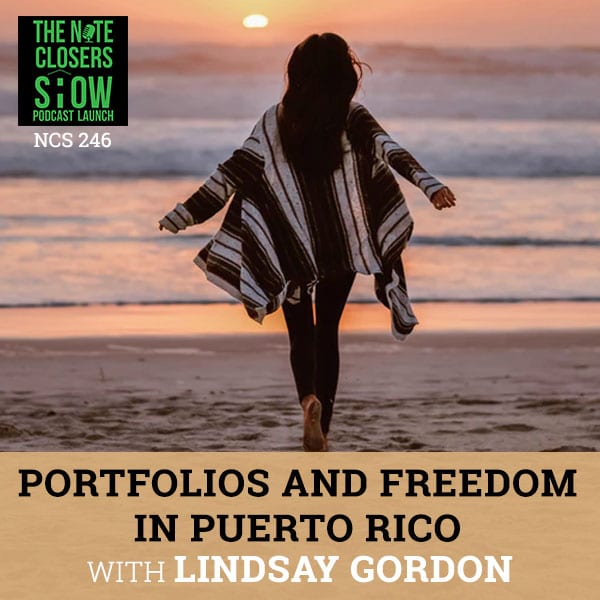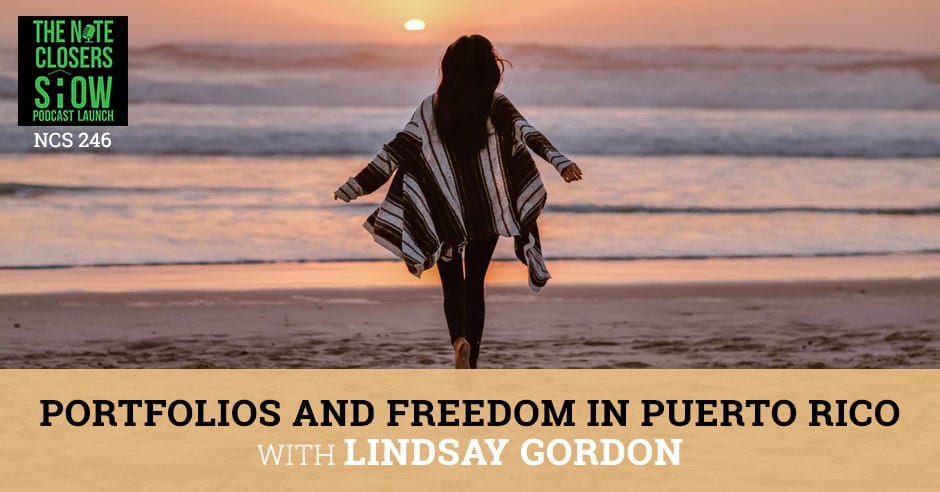
Nowadays, with the internet making the world smaller and any place accessible at your fingertips, any business can be done from anywhere, including real estate. Lindsay Gordon of Silver Capital Bay was conducting her real estate business out of Philadelphia before she decided to transition to Puerto Rico and gained the ability to finance her dreams with her note business. Lindsay shares the highs and lows of running a business remotely and the challenges she’s encountered with business and tax laws, owning properties in Puerto Rico, and outsourcing their documentation, servicing, and technology.
—
Our guest is a lady I’ve known over the last few years and been able to watch her absolutely transition from living here in the States, working on notes, living it and then choosing to change some of the things that she was working on to live a life that a lot of people only could dream of. This lady is out there doing some amazing things, traveling, and absolutely having a great time and using the power of her note business and real estate to help finance her dream.
Listen to the podcast here
Running Your Real Estate Business Remotely with Lindsay Gordon
We’re very honored to have Lindsay Gordon join us from Puerto Rico. Let’s talk a little bit how you got started in real estate and note investing. You’ve been doing this for awhile, so why don’t you share with people your journey and how you discovered notes.
When I was 22, I graduated college and I happened to meet someone who was doing real estate. They had been doing it for about six years. I started learning alongside of them and I bought my first property that winter. From there, I was flipping properties, renting properties, and you get connected to the right people. We met someone who was buying non-performing second mortgages, and the property business was great. You can’t complain but there are some things you can complain about. When we started learning about notes, we realized that there were a lot of benefits to doing that, and it seemed a lot more profitable. We also felt we could expand more. I’ve always wanted to be able to be virtual, so that allowed me to have that flexibility.
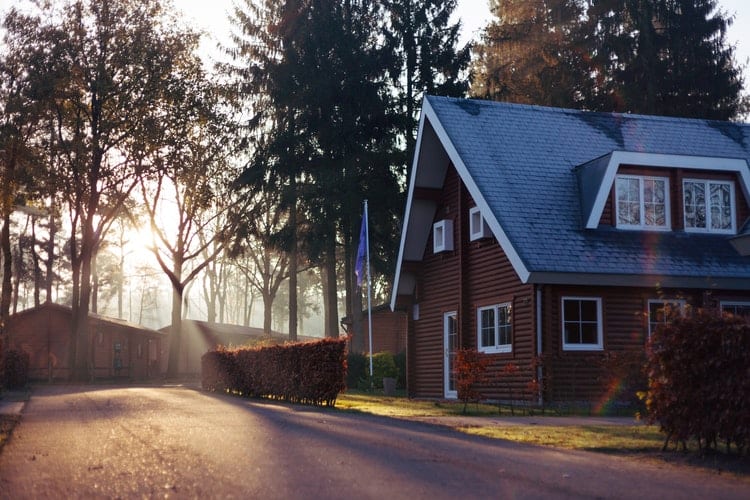
Real Estate Business: There were a lot of benefits to doing notes and it seemed a lot more profitable.
You’re living up in the Philadelphia area or New Jersey area, is that right?
Yes, I’m right outside Philadelphia.
You started buying seconds. You had a portfolio, you’re buying a pretty good chunk of seconds. Were you using your own money or other people’s money?
Everything I’ve always done, I started out with a small amount and I started out with my own money. I wanted to see how it worked just to validate if what people were saying was true. Once I did the first small pool, we quickly grew from that to raising money, to having a private placement, and starting a company around it.
When did you guys decide to make the transition down to Puerto Rico? What was the thought that went into that? Have you always wanted to live in the tropics? What led to that? Did you get tired of the Philly winters?
I have lived in Philadelphia, Pennsylvania for 28 years. I never even thought of leaving. I always loved traveling, but I never thought of moving. One day, Joe got some information about the ability to not have to pay taxes and live in Puerto Rico. Once he found out about it, I was all in for that because our businesses tax was heavy. To go from paying a lot of taxes to zero is huge. It made perfect sense. I also wanted to learn Spanish, and you can’t complain.
What are some of the tax advantages that you have? You started a new company that’s based in Puerto Rico banks, right?
We didn’t have to even do that. We have our company moved from the States and it’s all based on capital gains. Any money we earn through capital gains is 0% because it’s based on where we live. Since we’re located in Puerto Rico, we don’t have to pay taxes to all the mortgages that we dealt within the States.
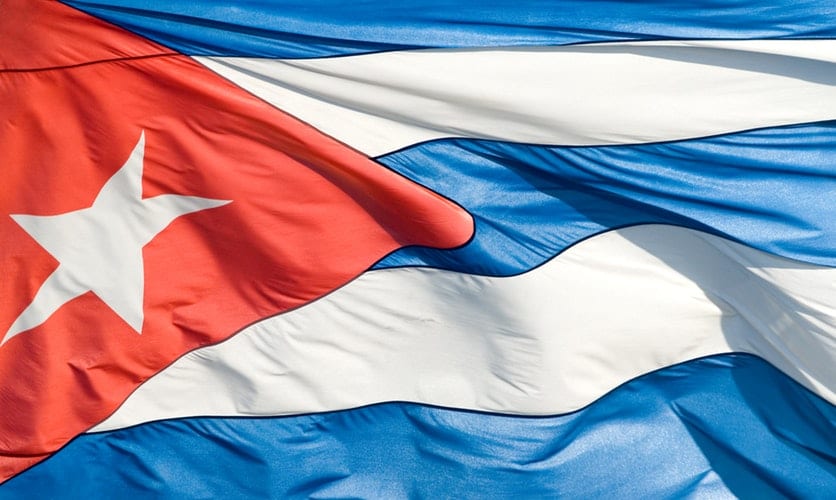
Real Estate Business: Since we’re located in Puerto Rico, we don’t have to pay taxes to all the mortgages that we dealt with in the States.
For those that don’t know, we do run into a lot of either short-term or long-term capital gains. It depends on what happens with the deals. How long did it take you to move down there? Was it six months, three months, three weeks, a year? We talked about it a while back, and the next thing I know, you’re down there. I was like, “That’s awesome. I’m so excited for you.” What’s the process? A lot of people think, “I have my house here. I got the kids in school.” You went and did it, and didn’t care.
I had bought a house. I had spent four months fixing it up. I had just moved in and Joe said, “In a week we’re going to go visit Puerto Rico.” We went to visit. Two weeks later, he said he’s moving down. Two months later I moved down.
Have you guys experienced any issues running a business from afar? There’s good and there’s also probably some bad. Anything that been hiccups along the way or no?
Not everything’s perfect. Puerto Rico definitely runs a little bit slower. That doesn’t hinder us because I sit in my room in Puerto Rico and I work with everything in the States. As long as everything in the States is going well, it doesn’t affect us.
You haven’t ever experienced anything with electricity or internet? Is it normal or come and go a little bit, or has it been good for you?
It’s been great. I had to get on a plane a few hours before Maria hit and leave. I left for three and a half months. Once I got back January first, I live in the touristy area right by the beach, and they like to keep that going. I’ve had no issues at all.
You were talking about you found a great place. Is the cost of living cheaper or is it more expensive? What are you seeing down there?
It depends on what you want. If you want ocean front places, like nice huge places, they can be more expensive but still cheaper than Miami. You can turn around and go two blocks and get something really cheap. It depends on what you’re looking for.
One of the great things you shared is the fact that you found a great place, you’re near the water. You talked about that you’ve found a portfolio of commercial loans down in Puerto Rico that you started working. Is that correct?
We were thinking about finding a pool of commercial loans, but we ended up going and buying the REOs themselves after they had been foreclosed. We bought a pool of 55 commercial properties in Puerto Rico, and we’re in the process of selling them off. I have about fifteen left.
Did you get that direct from a bank or a broker? How did you come across that?
It was through a broker for a bank in Puerto Rico.
Are you seeing that the property values are still holding? You picked them up, you’re a smart girl. You know exactly how to price appropriately. How big a discount did you end up seeing that you got it compared to what you’re selling it for?
We were able to get a significant discount because we bought such a large package, so that helped a lot. We’re hitting all of our numbers. We did get appraisals and we had local people who have been in this business for ten years here reviewing everything for us. I’ve been able to hit all my numbers on every single property. I’ve even sold maybe five post-Maria, even between in and around Christmas time, so things are still selling.
We’ve seen some portfolios of distressed notes there that we see from Banco Popular and a few other banks on a regular basis. They’re motivated to move that stuff. We’ve discovered that a lot of the distressed notes in Puerto Rico may drag on default for three, six, nine months. There’s about 85% reinstatement rate on the default rates because you have a lot of international people buying there that pay everything once a year as things roll through. It’s definitely made for an interesting market. The areas, the touristy part, when you’re down there in January, they look normal. You’ve been doing some amazing things using a lot of the good stuff you’re doing in real estate to finance your stuff. Every time you moved out, I’m willing to bet that’s changed your outlook on things over the last six to twelve months. Am I correct?
I came to Puerto Rico three years ago. They always have a requirement that you have to be here for six months. I utilized that to be able to travel anywhere that I wanted for the other six months of the year. That encouraged me to start traveling the world. I always bring my laptop with me. I can’t say that I wasn’t up at midnight till 4:00 AM in Rio doing some work because I always need to make sure everything’s okay. I don’t necessarily post those things on Facebook, but there are things that happen. There’s still work that I do while I travel. It’s not pure travel. A lot of it, I’m even setting up somewhere else to be there for a little bit of time, and work while I’m there. Puerto Rico has inspired me to travel a lot.
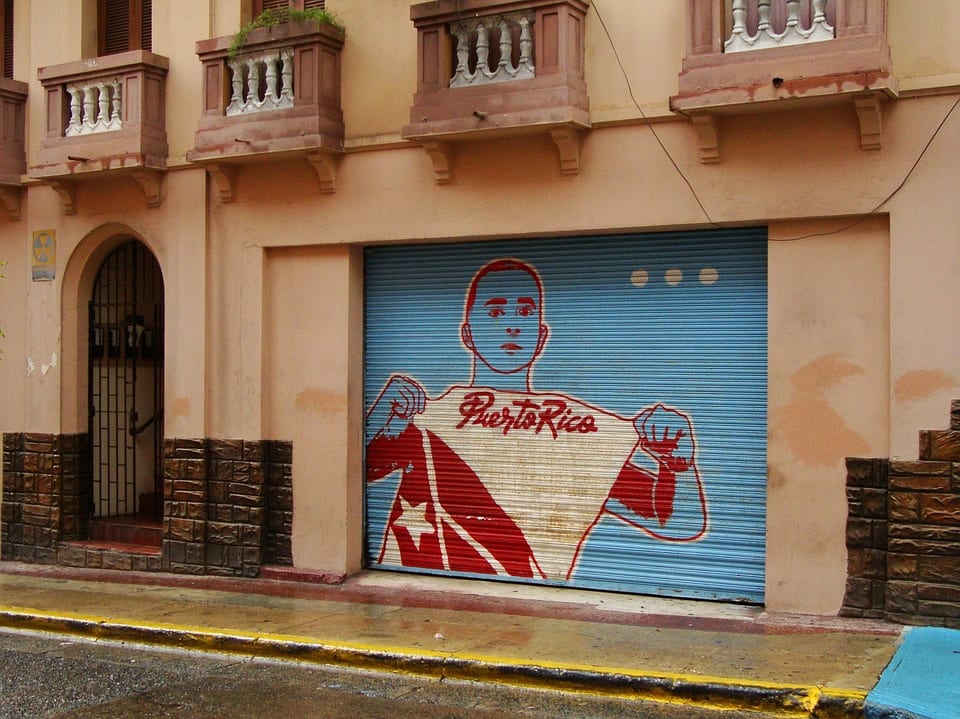
Real Estate Business: Puerto Rico has inspired me to travel a lot.
For those that are here domestically and they’re looking at doing that, what would you say? What would be the biggest thing that surprised you that you overcame about your travel? Also, being able to carry on your business remotely from the US, there’s a lot of people that’s like, “I can’t buy a note that’s states away.”You’re a country away. A lot of people flip out about that. Talk about any of the big surprise for you that was easier for you because you’re using agents or you’re using servicers. What’s been the biggest a-ha? Has this been easier than you expected to do it remotely?
Sometimes, even when I’m not in Philadelphia, I have the hardest time dealing with my property in Philadelphia. Sometimes I have the hardest time doing things there and I’m like, “Why am I not doing the same thing I’m doing in all the other states?” I sold a property in Georgia. I’m selling a property in Arizona. I’m selling properties everywhere, but it makes it even easier for me because I have to find someone to take care of it for me. I had a whole system of how I find the best people to represent me. That makes traveling and being in Puerto Rico just as easy. I have regular cell service here and everyone’s reachable nowadays by email. It makes it so easy to be moving around and in contact with everyone.
When you talk about the use of Skype, Zoom, cell phone, text, or Facebook message, there’s a whole variety of way to get a hold. We communicate in three or four different ways. People take for granted that you can clone yourself remotely and it makes things happen. What has been your favorite place that you’ve traveled to in the last year?
It has to be Spain. I went to Spain and Portugal. I did a road trip for a month and it was fun. I like Latin culture and it was more like the US Navy than Puerto Rico is, so it felt a little more at home there.
Do you have some goals for yourself over the last twelve, 24 months of things that you want to accomplish, not only this year, but your long-term dreams? You’re doing some traveling and I’m thinking, “I can only make that in a dream.” You’re living your dreams, which is why it’s such a beautiful thing to see. The energy is coming out of you in your photos. You can see the smile across your face of how much fun you’re having. What are some of your biggest goals? Have you adjusted your goals over the last 24 months because of the new things that you’re accomplishing or new places that you’re going?
One of my goals this year is to not have as many goals or plans because I tend to be a planner. I do have a goal of getting another pool of commercial property in Puerto Rico, another pool of non-performing seconds. While I’m traveling, I also have the goal of starting a YouTube channel that talks about traveling, tips for traveling in certain places, real estate, mortgages, investing. I would love to be a financial coach for people and even simple stuff like budgeting, how to afford to travel, and how to afford to do all these things that they want to do because I always do them affordably. I’m not staying at five-star resorts. You can’t necessarily travel for six months out of the year and do that. There’s ways to do it and I want to share all that information and everything I’ve been learning with other people.
You have that website, LindsayGordon.com, that started off?
Yes. People can subscribe at YouTube.com/LindsayEGordon and they can follow me there. That’s the best place where I’ve been posting things.
You talked about getting more in the second space. Since we have a good chunk of people that follows there in the second space, how has that market been affected the last twelve months? Have you seen it tighten up because of a lack of inventory? Are you still finding things?
As the economy has been improving, we’re still oftentimes buying seconds from years ago. A lot of them wanted to sell. They’ve already sold or written off. It definitely has tightened up. The pricing has increased a lot. Sometimes when people come to me to buy seconds, they’re expecting lower pricing than I can’t offer because I had to pay maybe even twice as much. There’s definitely been a shift there as well.
With the second space, what’s been your primary goal? Have you got a re-performing? Is it to take the property? It’s an aspect of it but a lot of people have a bread and butter play that they like to do when they’re buying a specific asset class. What’s been yours?
Maybe it’s different per seconds, and maybe it’s because I want to help the homeowners. People think I might just be saying that. I do whatever the homeowner wants to do. If they want to sell their property, then I help them sell it. If they want to stay and pay, I help them stay and pay. I restructure the deal based on what the homeowner wants to do. I feel like if I’m doing that, then it works out well for everyone.
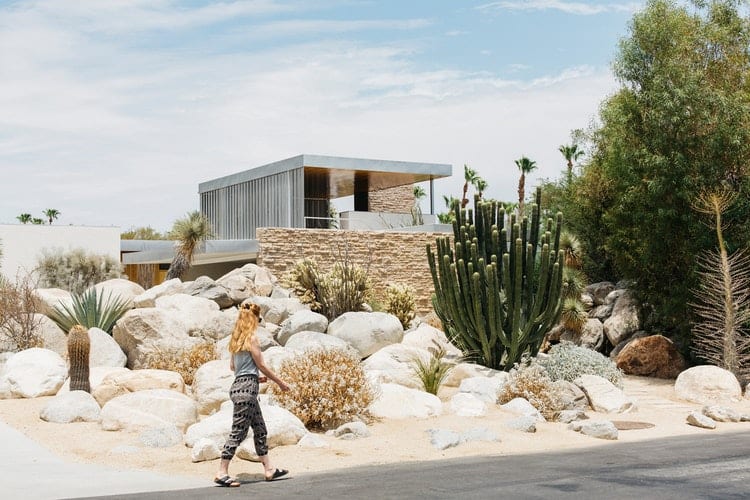
Real Estate Business: I do whatever the homeowner wants to do. I feel like if I’m doing that then it works out well for everyone.
You’re doing a lot of the loss mitigation. Are you having services do it or a special service who do a lot of that for you? How’s that working for you?
We have a servicer that we put the notes with, but I did do a lot of the negotiations.
How has that worked up being remotely and while you’re traveling across the country? A lot of emails or phone calls? Do you have an interesting story where you were doing something fun, and had to stop what you’re doing to get on the phone with a borrower?
Walking down the street, I sometimes forget how noisy it is. I think, “I’ll answer this call from this borrower.” Meanwhile, they think I’m in an office and there’s a dump truck dumping something. I’m like, “I might have to call you back.”They’re like, “What? Why did you answer the phone?” I have to be more careful sometimes.
What’s the ratio with your second space? In the first place, you’re buying ten notes. You’re going to get two to three that will get reinstated, two to three that you do Cash For Keys or deed in lieu, and the other four to six you want to foreclose on. What kind of ratios do you see on your seconds side? Do you keep track of that?
We find that about seven out of ten will work out in some way. Maybe one or two, we’ll do some sale or short sale out of ten. The other few, there might be one or two that’ll satisfy. The last I would say we’d do a modification.
Do you have any that you’ve had to put on in a file cabinet and wait for awhile on anything?
I would say maybe like three out of ten. Some of those that I put on a shelf a few years ago have been sending in full payoffs now, which has been so nice.
We have a lot of people saying, “How are you raising? What’s your best way of raising capital in the second space?” Any tricks and tips that you would like to recommend to people, networking, knowing your deal flow? What kind of tip you can give some people in the second space for raising capital?
If they’re coming from some other industry where they raise capital, that’s how I did it. I was raising money for property. I already had good relationships with people and that made it a lot easier to transition them over into what I was doing in seconds because they trusted me. They knew I knew what I was doing and that I was making smart choices. Otherwise, it can be difficult to convince someone who’s especially new to seconds that it’s a good idea. I could say, “It’s a good idea,” but they might not believe me that it’s a good idea.
When you look what people are paying at here domestically for REOs and traditional property, then that space is still a substantial discount than what most people are seeing out there. You have your team back home in the United States. Did you have an office up in the Philadelphia area? Are they still up there? How did that work out for you?
When we moved to Puerto Rico, we brought one person with us. We kept one person on virtually, and we got rid of the office. We outsourced everything. We outsourced all our documentation, we outsourced our servicing, and we outsourced all of our technology needs overseas as well. We only contract with people and we work virtually with everyone, so we don’t have any one in any office or any employees.
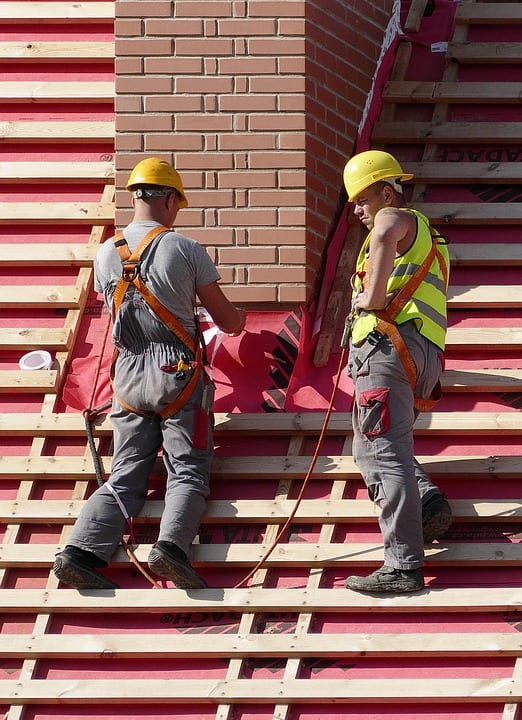
Real Estate Business: We outsourced everything. We only contract with people and we work virtually with everyone.
With the hurricane going through there, there was some damage on there, comments that the island is still half without power. Is that overdramatized or are there still a lot of areas in Puerto Rico that are having a rough time?
There are some areas that are, but people misunderstand that there are areas that are perfectly fine. I have people constantly calling me up saying, “You don’t have any water, you don’t have any electricity.” I’m like, “I’m living a regular life.”It’s back to normal, in my opinion. There’s a lot of people down here helping with the relief efforts. I would think day by day, things are getting better.
Definitely being back to normal is important and expected. If it’s not, you’re a plane trip away from being in Florida or wherever you want to be. One of the things that is important is you’ve done a great job. You said some great things that people fail to realize. You’re using offshore people. I’m sure you’re using a lot of VAs. You have somebody back home who works virtually for you in technology to replace that day in day out or the minute-by-minute interaction. It’s possible. You’re also saving money compared to what you would be paying in full-time salary, taxes, and payroll things. Correct?
We’ve saved a lot. In business, anytime that you can pay for services, pay a little bit more for the service. You’re not paying for someone to be around all the time. I always think that’s better because you’ll have less overhead. If you’re making a lot of money, then they’re making a lot of money. It goes hand-in -hand and usually works out better.
What was the biggest surprise with the people in Puerto Rico? Is there a lot of people looking for work there? Are people very friendly of Americans coming into Puerto Rico? Has there been any pushback there or anything? When I was there, we had nothing but great things, but we also noticed that we went to some different areas. People were very pushy and very aggressive towards the tourists. Do you see any of that happening?
Here and there. I’ve had a few people over the years that I’ve ever encountered that didn’t make me feel welcome. Puerto Rico has some of the happiest people in the world. They’re nice. Maybe I just love everyone. I always get good vibes from everyone, feel very welcome. Sometimes it could also be a language barrier if you go to other parts of the island. I speak a little Spanish, so I try to do that. I dance salsa so they usually love me.
What do you miss the most? Do you miss anything from up here in the States? What’s the thing that you miss the most from being down there? Anything on a regular basis?
I was living in DC and partner dancing in DC is better, so I have been missing that. I don’t really miss the cold. I don’t miss Pennsylvania too much.
Anything else besides the cold, the people? Everything’s good?
Yes, for the most part. You have to get used to it. Every time I come back, I have to get used to it because it’s like living maybe a little less connected. You don’t have everything at your fingertips as much. We don’t have all the apps that all the other cities have. We don’t have everything. It’s more like living in the 2000 or something.
You don’t all have the creative apps that you get on your phone in every big city around here, but the people are friendly. You still have great food. You’re not living in a third-world country. When we went on a cruise, we stopped in Puerto Rico, and there were people that’s scared, “We’re not going to get along because it’s a little bit less attended.”You’re doing some great things down there. You’re putting money into the economy, buying and selling properties. It knocked some things out. On commercial property or the properties that you bought, what’s the makeup of those assets? Are they retail? Are they mixed-used? What’s the average kind of value for those properties in Puerto Rico?
There were a variety of things. It was anywhere from mixed-used to an office building, to some land, to a chicken factory. We have anything you could possibly think of, I have bought and sold.
What’s on your next roll of travel? Where are some places that you’re looking forward to going to?
I have a few things up in the air. I don’t have any plans this year. I will end up in Colorado skiing because I do like to visit some snow here and there. Costa Rica, that’s next month.
That’s another very Americanized area there and a lot of expatriates living down there. We have some friends who have some property down there and they love it.
Now is the best time to come. I tend to be in Puerto Rico a lot during this time of the year, and then once maybe when May or June hits, I might be gone for quite some time.
Dan asked a question here. “How is the government NPR with real estate deals? Is there an issue with corruption? Do you have to be a “cousin of” by any chance or no?
For the most part, we haven’t had any issues there. It’s not corrupt like I would imagine like Panama or somewhere else like outside the US where they could say you’re not a citizen. We’re US citizens buying US property, so there are still a lot of guidelines they have to follow that are along the same lines. There are definitely still some internal issues with taxes that we encounter here and there, but we have a great law firm that handles everything, and so it’s been fine.
If you’re buying distressed debt in Puerto Rico, it’s a longer foreclosure timeframe similar to New York and New Jersey. You made a very smart play to buy into REOs already done for you. There are plenty of people that would even buy. When you buy real estate that’s got beautiful views of the water and areas like that, it’s going to recover quickly. All you have is somebody that’s interested in buying that and taking advantage of that.
We didn’t buy that type of stuff. It depends if you’re looking for residential. That would probably be a better bet for us. We bought in the weirdest parts of the island and it worked out well. You will definitely encounter things where you’re going to go to court and the borrower is going to show up, and it’s the uncle who’s the judge. You definitely would encounter things like that.
You can check out our YouTube channel by looking for Lindsay E. Gordon. If you’re listening to us on iTunes, you can go to the blog at WeCloseNotes.com. We’ll have all the links to Lindsay’s profile. You are still buying and selling. If somebody’s interested in buying some real estate down in Puerto Rico, should they reach out to you as well?
We have commercial properties left. We’re looking to get another portfolio. If they’re interested in that, they can reach out to me. We also have non-performing second mortgages for sale as well. If they want to buy those, they can cherry pick and bet on individual assets there.
Is it still at BigCapital.com, the website, for you?
They can email me at LGordon@SilverBayCapital.com.
Lindsay, thank you so much. I appreciate it. It’s always a pleasure to catch up with you.
Thank you.
Thank you.
Important Links:
About Lindsay Gordon
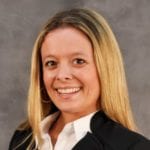 Lindsay Gordon is the chief operating officer for Silver Bay Capital. Lindsay has been investing in a wide variety of stocks, bonds, and mutual funds since 2003. She began investing in real estate in 2009 where she purchased, rehabilitated properties, and manages a portfolio of rental properties in Philadelphia. Her immense knowledge of investing and experience in real estate has helped Lindsay to become a very knowledgeable leader in the distressed debt industry.
Lindsay Gordon is the chief operating officer for Silver Bay Capital. Lindsay has been investing in a wide variety of stocks, bonds, and mutual funds since 2003. She began investing in real estate in 2009 where she purchased, rehabilitated properties, and manages a portfolio of rental properties in Philadelphia. Her immense knowledge of investing and experience in real estate has helped Lindsay to become a very knowledgeable leader in the distressed debt industry.

